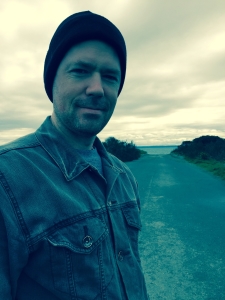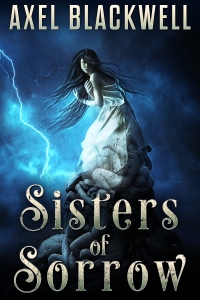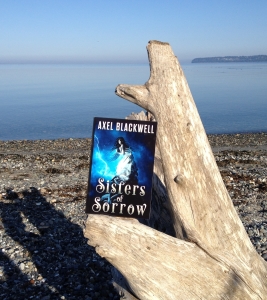According to the Huffington Post, “Kentucky state Sen. Paul Hornback, who is also a tobacco farmer, was quick to write off any concerns that advocates may have about kids — as young as 7 — slaving away in tobacco fields.
“We’re raising a society that’s too soft,” Hornback told Bee. “Children need to experience things.”
Should forced labor as young as age seven, involving health hazards such as “… 12-hour days, no breaks and frequent cases of acute nicotine poisoning–” be part of the childhood experience not only in the United States, but worldwide?
Child labor is a grim reality with over 85 million children worldwide enslaved and forced to labor under horrendous conditions. Human trafficking helps feed the monster of child slavery by stealing children from their homes and streets. The United States is not immune. Children slave in Virginia and Kentucky’s tobacco fields.
My novel, Street Harvest, Book 2, Special Crimes Team, addresses the plight of stolen children. Now, Axel Blackwell’s Sisters of Sorrow tackles the horror of child labor. When Axel approached me about the possibility of reviewing his work, I let him know that I only post about novels that entertain, enlighten and empower women and girls. He thought I might like the protagonist, Anna Dufresne. His book is well-written and presents an engaging story of how a young girl refuses to give up her dream of freedom. I’ll let him tell you about his new book.
 Axel Blackwell, Author: Thank you Aya, for your kind words (review) about my new novel, Sisters of Sorrow, and for your invitation to discuss it here at your blog. You were one of the very first people, outside of my close family, to take an interest in this tale. I greatly appreciate that and am very happy to have the opportunity to share with you and your readers.
Axel Blackwell, Author: Thank you Aya, for your kind words (review) about my new novel, Sisters of Sorrow, and for your invitation to discuss it here at your blog. You were one of the very first people, outside of my close family, to take an interest in this tale. I greatly appreciate that and am very happy to have the opportunity to share with you and your readers.
You asked how this story came to be… I wonder that myself, sometimes. I have wanted to write this piece for nearly two years, though I knew almost nothing of what would happen beyond the first fifty pages. I started with one scene very clear in my mind: Anna hiding in the shadow of a beached rowboat while the sadistic nuns hunt for her. The Pacific is behind her, the factory is exploding in front of her, and her only hope of survival is to follow the voice of a ghost into the cisterns below a ruined farmhouse. The rest of the tale grew from there, and it turned out to be one wild ride.
Anna’s journey starts with her lowest instincts – self-preservation, at all cost. The extremity of her circumstance has purged much of her humanity. As the story opens, she has been abandoned by her father. She bears an enormous load of guilt related to the death of her mother and infant brother. She is beat-down, terrorized, and traumatized by the cruelty of her guardians and by the brutal machinery she is forced to operate. Nearly all of Anna’s fire has been extinguished.
But that last glowing ember of hope proves to be just enough for Anna to cling to survival. She escapes the looming horrors of the factory only to rediscover her capacity for compassion, empathy, and love – traits that drive her straight back into the dangers she just escaped, and other dangers greater than she had ever imagined.
I didn’t set out to write a girl-power book, but I believe people (female or male) have vast reserves of strength available to them – if their need is powerful enough. Also, a character who waits around for a strong man to come rescue her isn’t very inspiring. I hope that this story is empowering and uplifting to whoever reads it. I wanted my readers to identify with Anna, to see her plight through her eyes. She hopes for rescue throughout her story, whether the rescuer be the witch disguised as a nun, or the voice that speaks to her though the walls, or her fellow-refugee Donny. But in the final defining conflict, when there is no one left to stand between the evil and the innocent, Anna offers her own life to become that rescuer. This is a story of desperation and courage, and the power of the nobler instincts.
 As to Anna’s future, many adventures await. Anna still has much to discover about herself, and about the world of the witches and those who hunt them. I plan to write at least two more novels in this series, and likely a novella-length prequel as well.
As to Anna’s future, many adventures await. Anna still has much to discover about herself, and about the world of the witches and those who hunt them. I plan to write at least two more novels in this series, and likely a novella-length prequel as well.
Thank you again, Aya, for inviting me to your blog. As writers, we create ideas, images, sometimes entire worlds in the minds of our readers. Those creations influence the way our readers interact with the real world. Thank you for the positive and empowering message you present here. I am very happy to have had the opportunity to add my voice to that message. I love hearing from readers. If anyone has questions or comments, please feel free to contact me at axblackwell@gmail.com Have a wonderful rest of your day 🙂
Axel Blackwell attempts to define reality through fiction and tease truth from tales. Also, he just tells stories. You will often find him in the woods, or on the shore, or sometimes in a book. He lives with his wife and three children near a misty bay in the Pacific Northwest.
To obtain a copy of Sisters of Sorrow, follow this link:
http://www.amazon.com/Sisters-Sorrow-Axel-Blackwell-ebook/dp/B00VZO2242/
For more current news about child labor–over 27 articles published on April 27, 2015 by the Huffington Post–and how child labor affects the United States and what is being done about child labor go to http://www.huffingtonpost.com/news/child-labor/
To discover what other tough issues my novels tackle, go to http://www.amazon.com/author/ayawalksfar